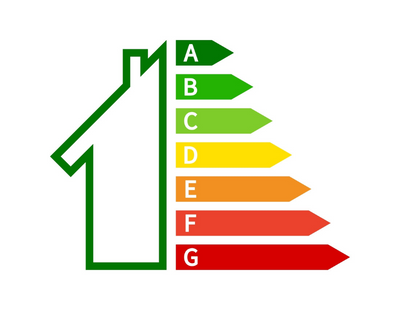
Propertymark has slammed government energy efficiency proposals as being “unrealistic, too simplistic and could deter people from moving home.”
A formal consultation process from government closed earlier this month. It proposed to introduce strict new targets including an average target of EPC band C by 2030 with maximum spending per property to achieve this of some £10,000.
Propertymark says the proposals could make older property harder to sell.
The organisation cites various examples of how stricter rules could deter buyers of existing properties - so Wales has the oldest private rented dwelling stock in the UK with 43 per cent built before 1919, while according to the 2018 English Housing Survey only 29 pr cent of owner-occupied homes in England are rated A to C.
Propertymark also wants a lower maximum spend limit as it says would-be movers may simply stay put if they think they have to spend £10,000 bringing their property up to an EPC target.
“Without a lower maximum spend limit and additional funding support Propertymark is concerned that many would-be home buyers will not be able to afford improvement works on top of the existing costs associated with home moving and could be deterred from moving altogether” says the organisation.
Propertymark is also concerned that additional borrowing costs are unlikely to support more first-time buyers to step onto the housing ladder and as a result they should be exempt from these proposals, and then incentivised to make improvements once they have purchased a property.
Instead Propertymark wants to link improved energy efficiency with property taxes.
This could include using tax breaks such as making energy improvements exempt from VAT, and/or offering lower rates of council tax for properties that have been made more energy efficient. The organisation also suggests an adjustable rate of property tax tied to energy performance, thus shifting buyer preferences towards more energy-efficient homes.
It says this could be done in two ways.
“Firstly, apply the adjustments as a reduction on more energy-efficient properties and those properties that have been made as energy efficient as practically possible. Secondly, offer rebates to home buyers if energy efficiency improvements are made to less efficient properties within a certain time period from the point of purchase.”














.png)


.png)



Join the conversation
Jump to latest comment and add your reply
I'm not sure how this is a problem, unless the government makes it unlawful to buy or sell homes which do not meet the standard, which would be unheard of. Most of us who buy older homes like them for what they are and the energy efficiency criteria is lower down their list than for people who like more modern properties. Most older houses (even listed ones which I specialise in) can have their energy efficiency improved quite substantially, and their values represent the fact that they are not up to the standard of modern homes. Letting would become more of a problem, but the majority of purchasers are owner occupiers.
Before stricter EPC targets are used for anything EPC assessments must be made consistent, fair and clear. At present the system is biased towards gas (a carbon fuel); penalises electricity (a clean fuel); hugely affected by cost of fuel (irrelevant when assessing 'green-ness') and is applied using assumptions and opinions in a way that is unclear to the owner. If yo agree that EPCs are flawed and unfair please sign my petition on the Govt website, number 559700
Please login to comment